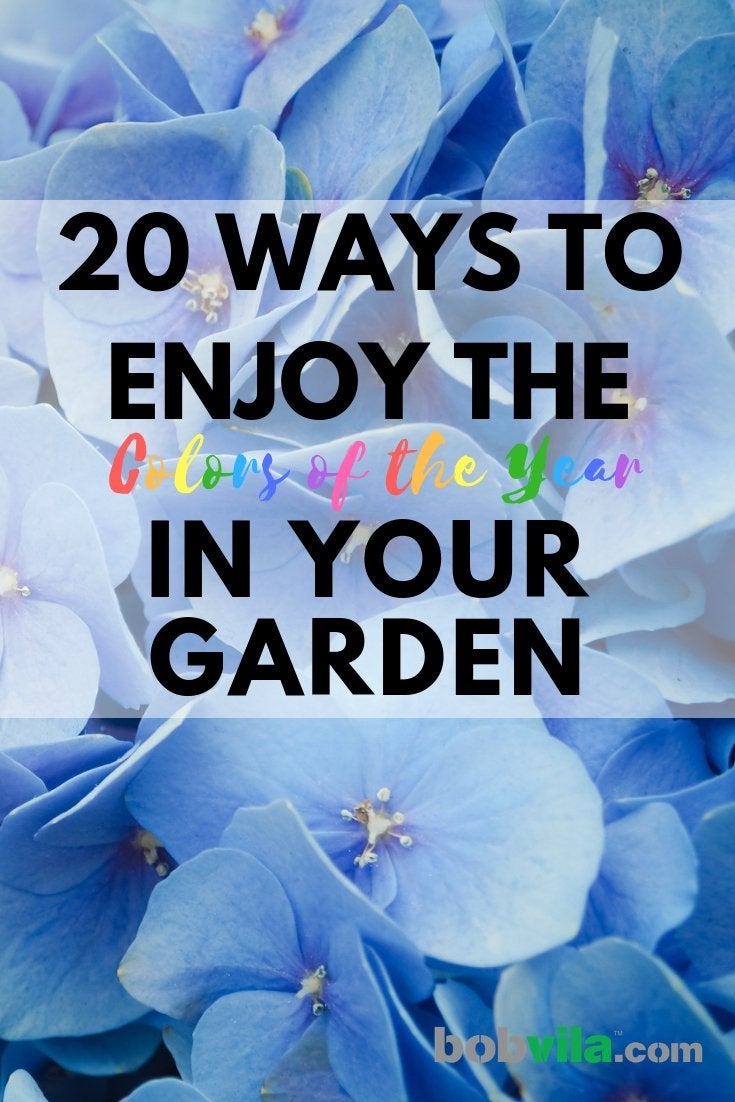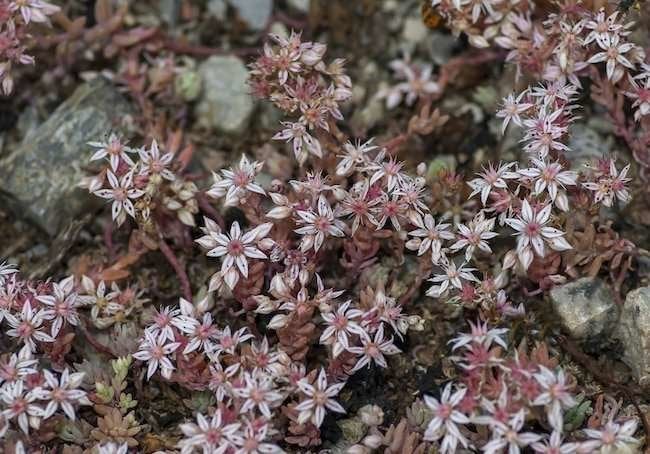

We may earn revenue from the products available on this page and participate in affiliate programs. Learn More ›
Home Advice You Can Trust
Tips, tricks & ideas for a better home and yard, delivered to your inbox daily.
By signing up you agree to our Terms of Service and Privacy Policy.
Orange Chrysanthemums
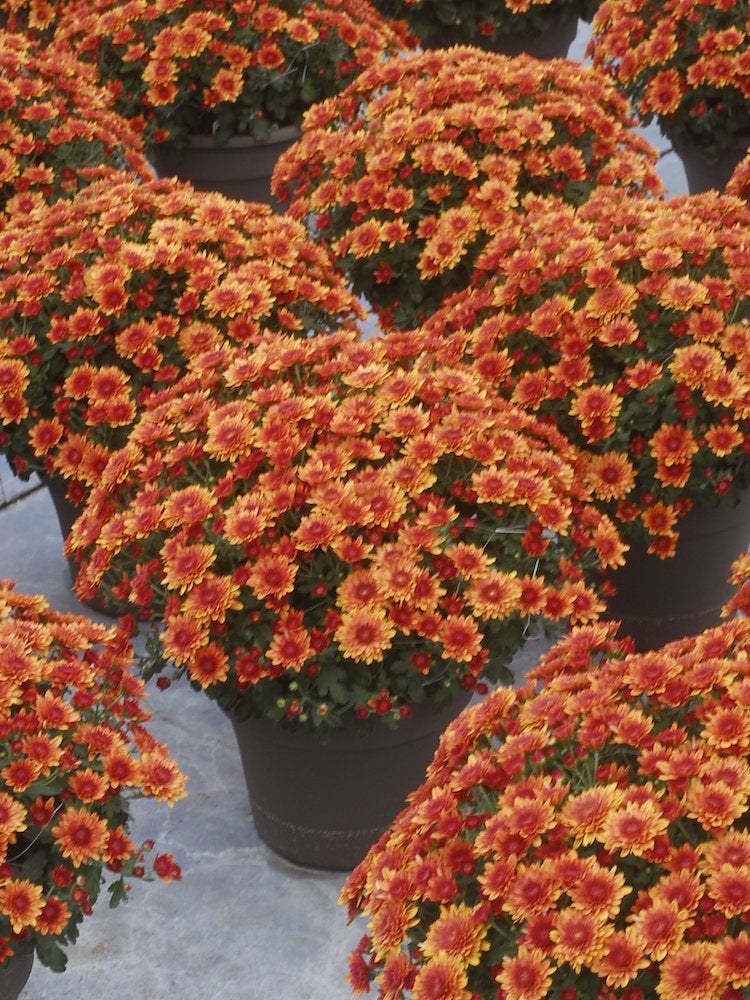
Sherwin-Williams named Cavern Clay its 2019 Color of the Year. Those same rusty earth tones grace many varieties of chrysanthemum, including Avalon Orange.
Tiger Lily
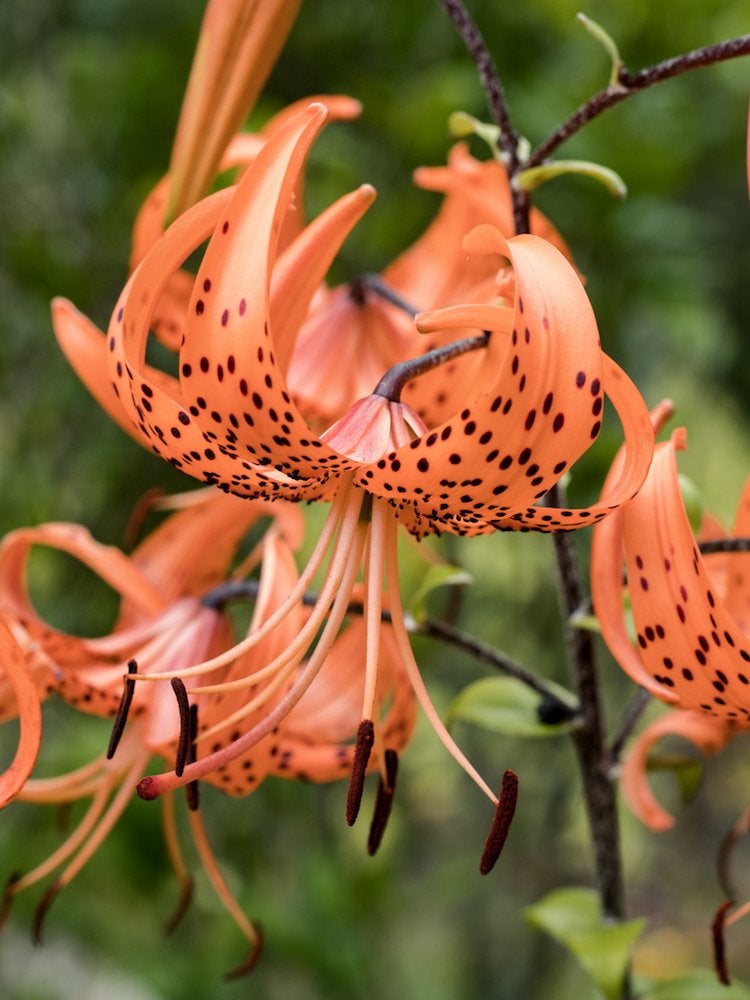
Offering another take on Cavern Clay, the showy tiger lily explodes with color every summer with warm orange flowers flecked with dark spots.
Related: 30 Low-Maintenance Plants for Your Easiest Garden Ever
Dusty Miller
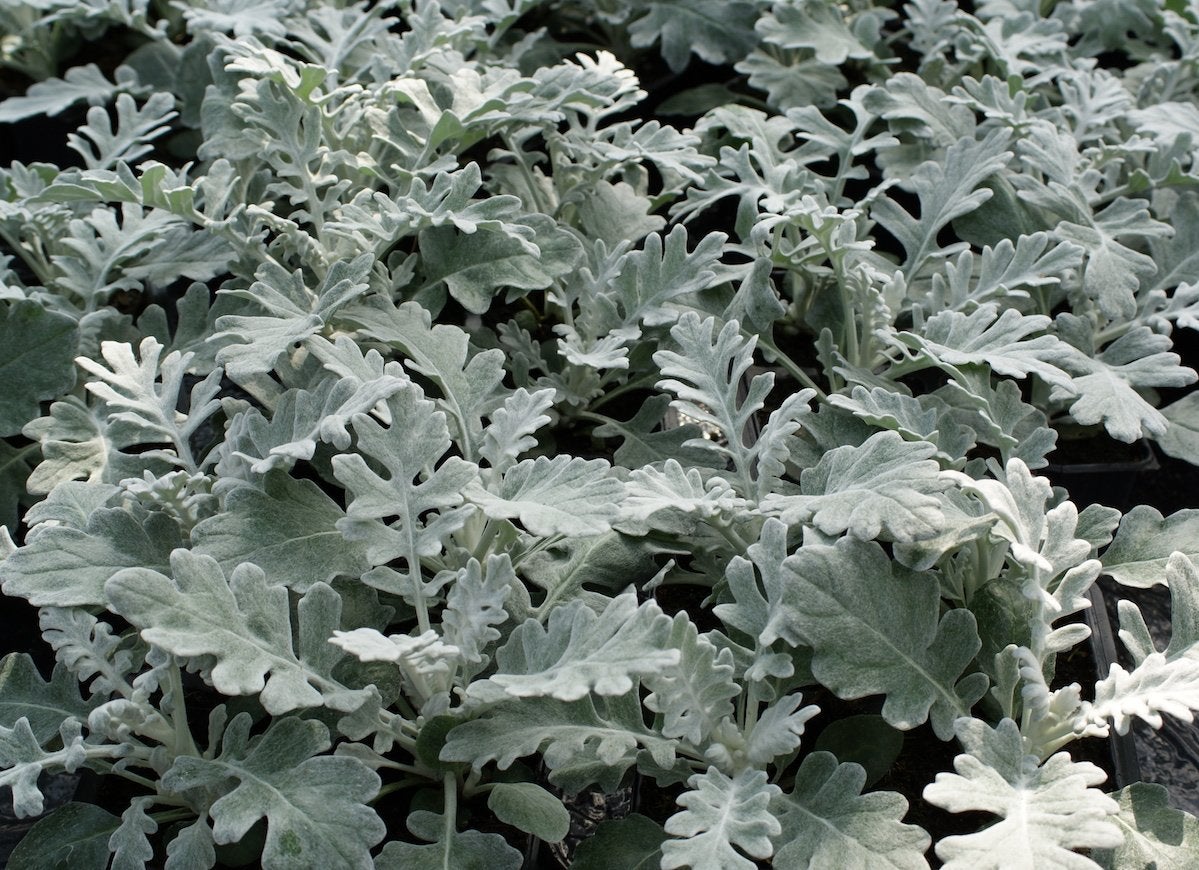
Metropolitan, an understated gray, is Benjamin Moore’s 2019 Color of the Year. Gray may seem an unusual pick for a colorful garden, until you’ve seen a display of dusty miller against a backdrop of vibrant flowers like salvia or foxglove. This usually low-growing plant provides a subdued counterpoint to flashier neighbors.
Hostas
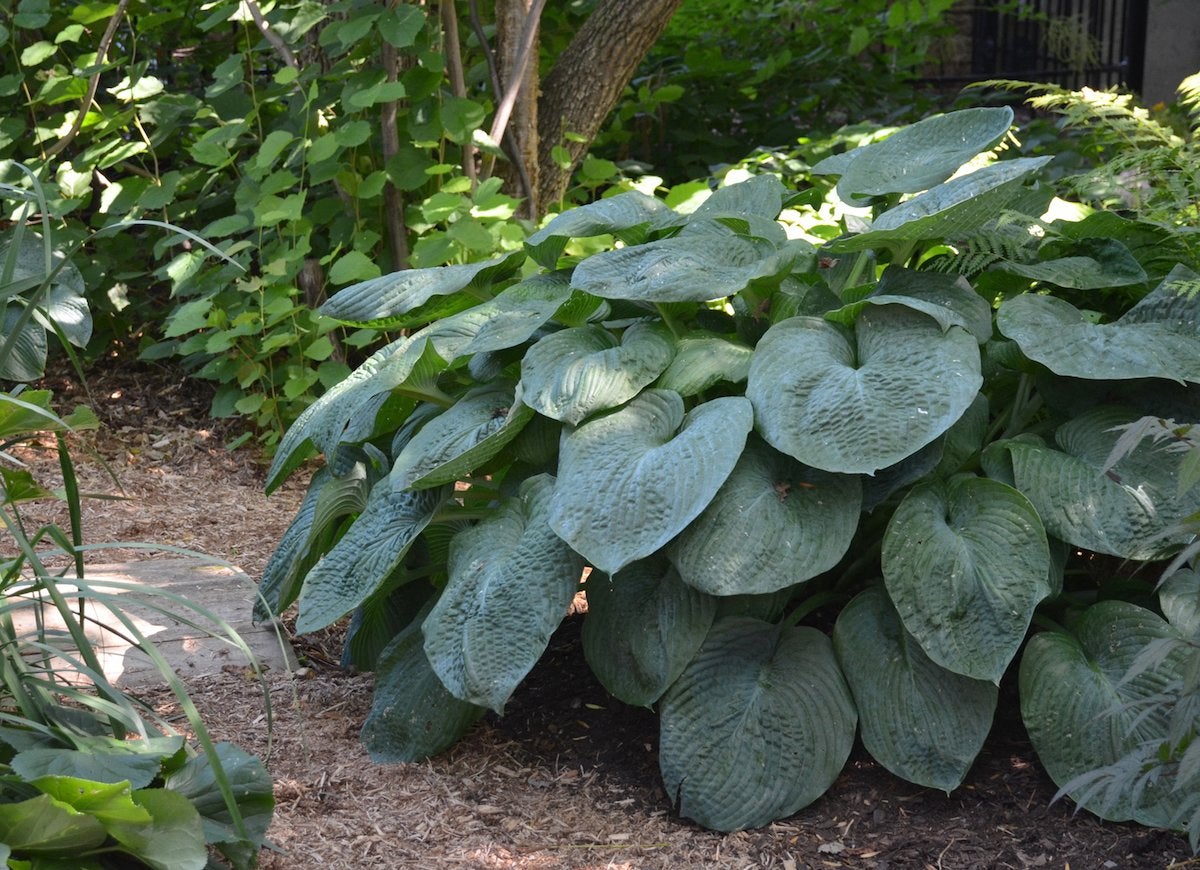
Hosta sieboldiana ‘Elegans’ has a gray overtone that mutes the traditional green of this shade-loving plant and evokes the knockout neutral Metropolitan from Benjamin Moore.
Related: 25 Shade-Loving Plants for Where the Sun Don’t Shine
Ghost Echeveria
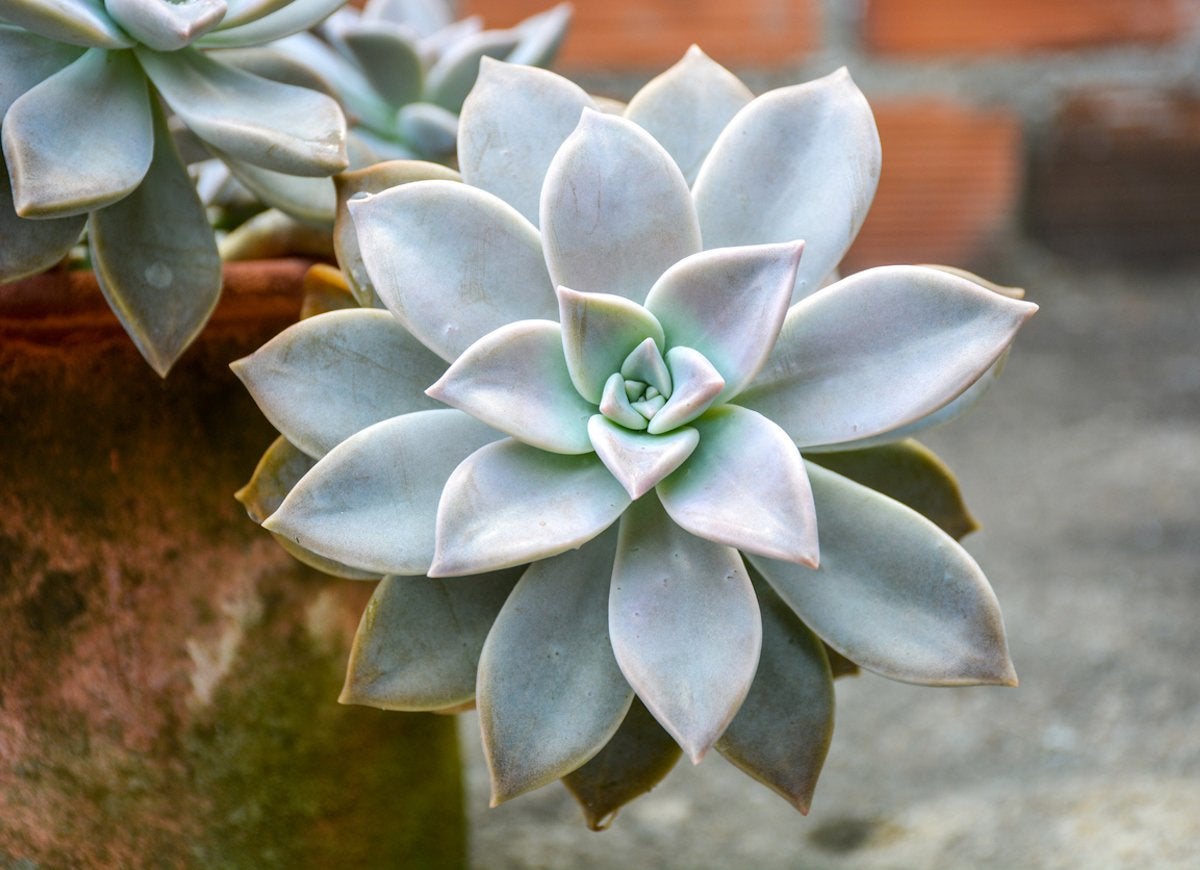
Echeveria lilacina, or Mexican hens and chicks, is a rosette-forming succulent that’s nearly white, but with a hint of greenish gray. If you love the look of Benjamin Moore’s Metropolitan inside your home, you will love growing this little charmer outdoors.
Related: 17 Drought-Tolerant Plants That Can Survive Dry Spells
Birch Trees
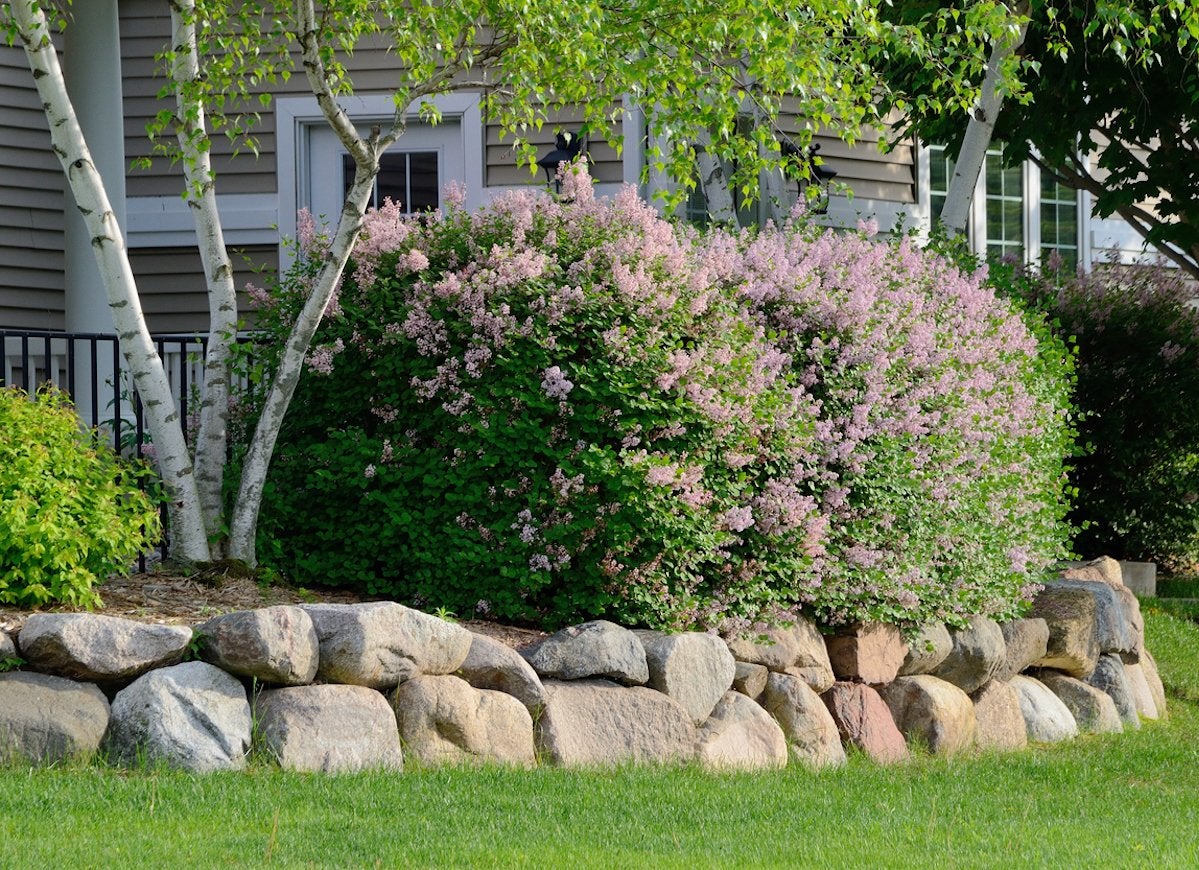
Don’t forget that tree bark can be a stunning visual element in the garden, especially in winter when the leaves have dropped to reveal the dramatic framework of branches against blue sky. Many varieties of birch have white bark with a touch of gray that conjures up the beauty of Benjamin Moore’s Metropolitan.
Blue Lobelia
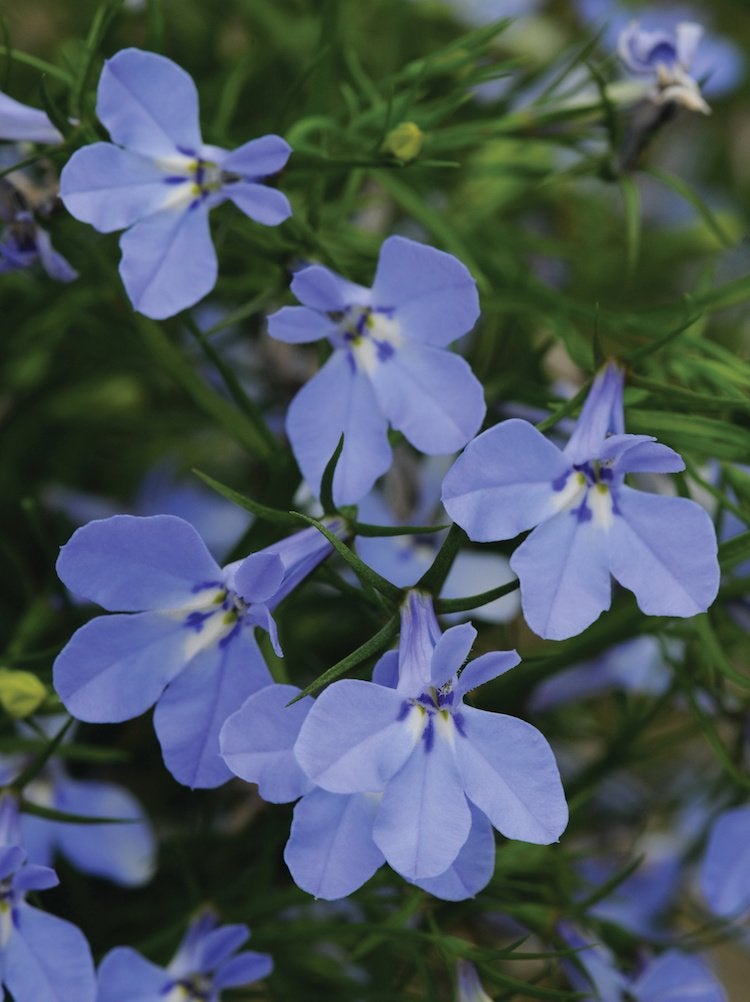
Blue may not be the first color you think of incorporating into your garden, but if you like the look of Blueprint, Behr’s 2019 Color of the Year, you can bring it to the garden with many varieties of Lobelia erinus, including Blue Palace and Laguna Dark Blue.
Hydrangea
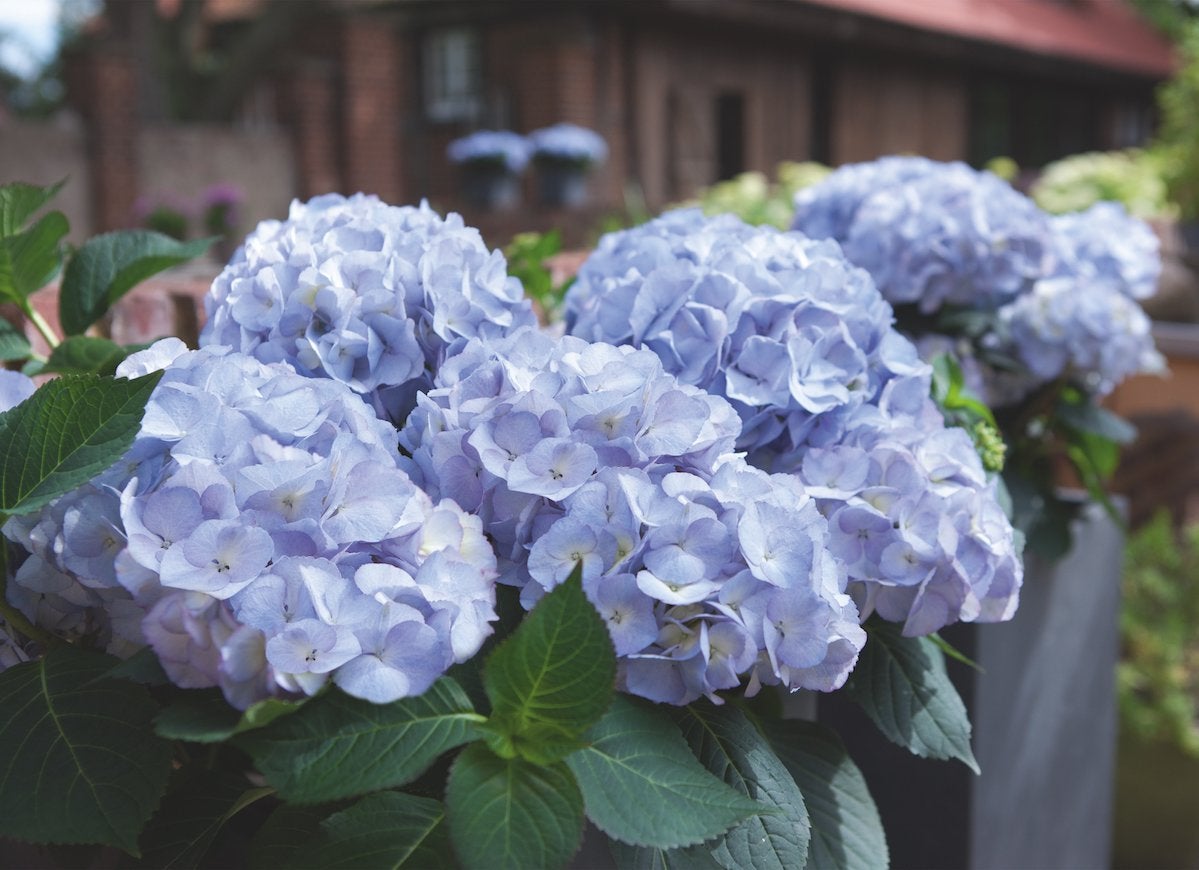
Many varieties of hydrangea come in blue hues, and some tend toward the dusty denim reminiscent of Behr’s Blueprint. Be mindful that for many hydrangeas, the color of their flowers depends on soil pH, so you may need to amend accordingly for flowers that will reach their brightest—and bluest—potential.
Related: 9 of the Best Shrubs for Any Garden
Ornamental Pepper
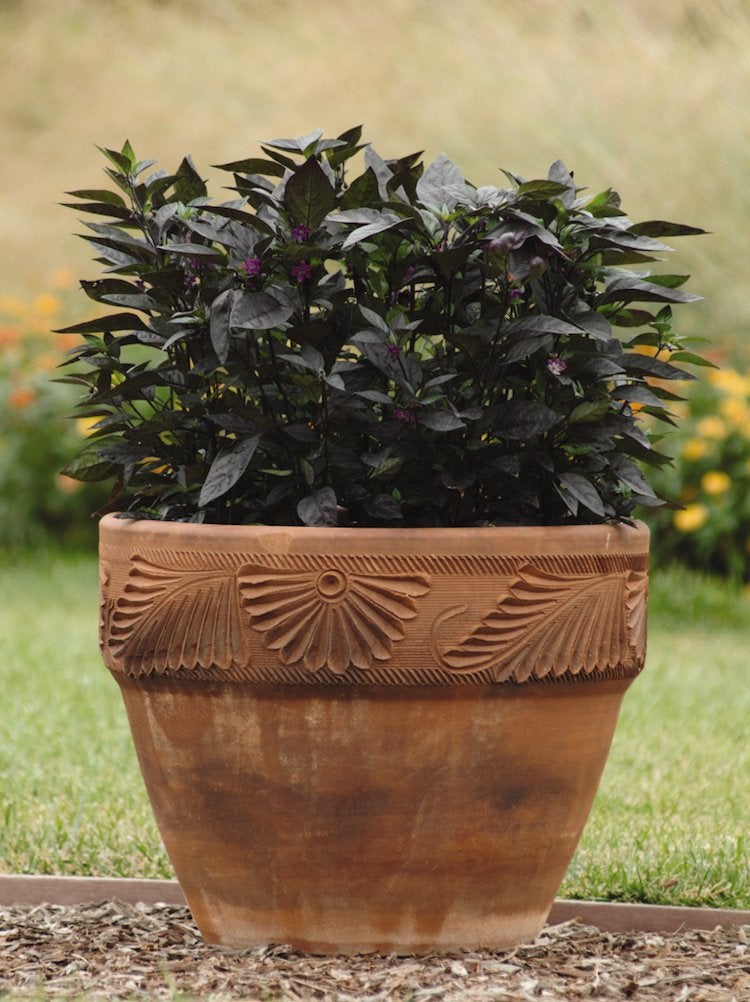
Not too many plants sport dark gray leaves, but those of ornamental pepper Capsicum annuum ‘Black Pearl’ are almost inky, evoking the hushed tone of Kendall Charcoal, one of 15 hues in the Benjamin Moore Color Trends 2019 palette.
Black Succulents
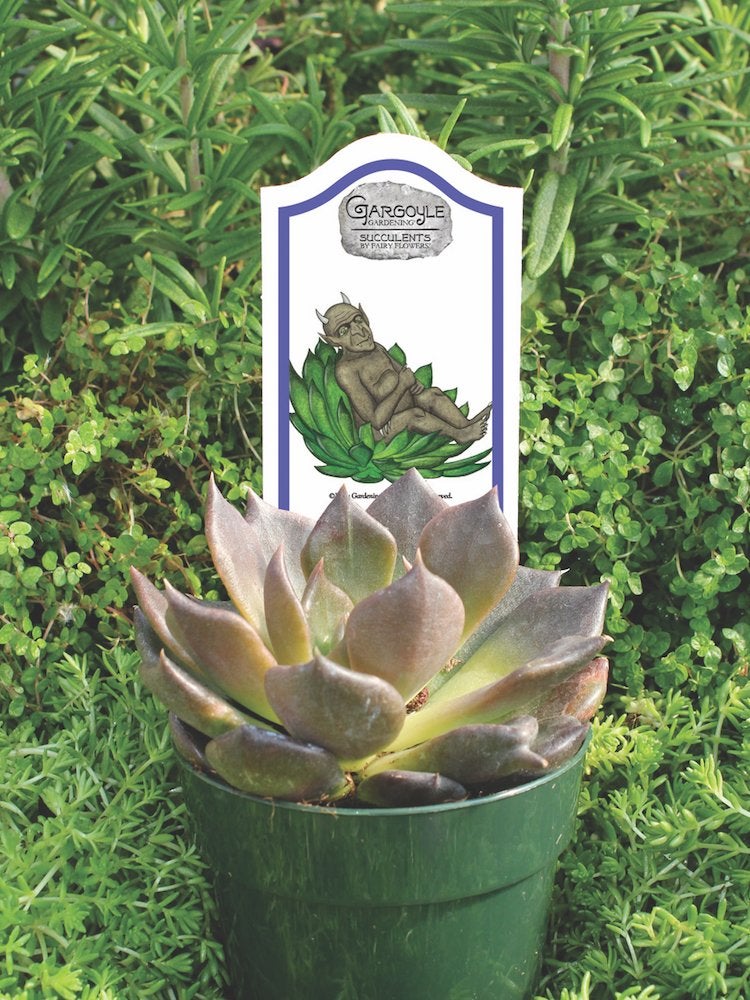
Succulents are beloved for their unusual colors that be surprisingly dark. To bring a touch of Benjamin Moore’s trendsetting Kendall Charcoal to your garden beds and containers, turn to Echeveria ‘Black Prince’ or a black variety of Sinocrassula yunnanensis.
Viburnum
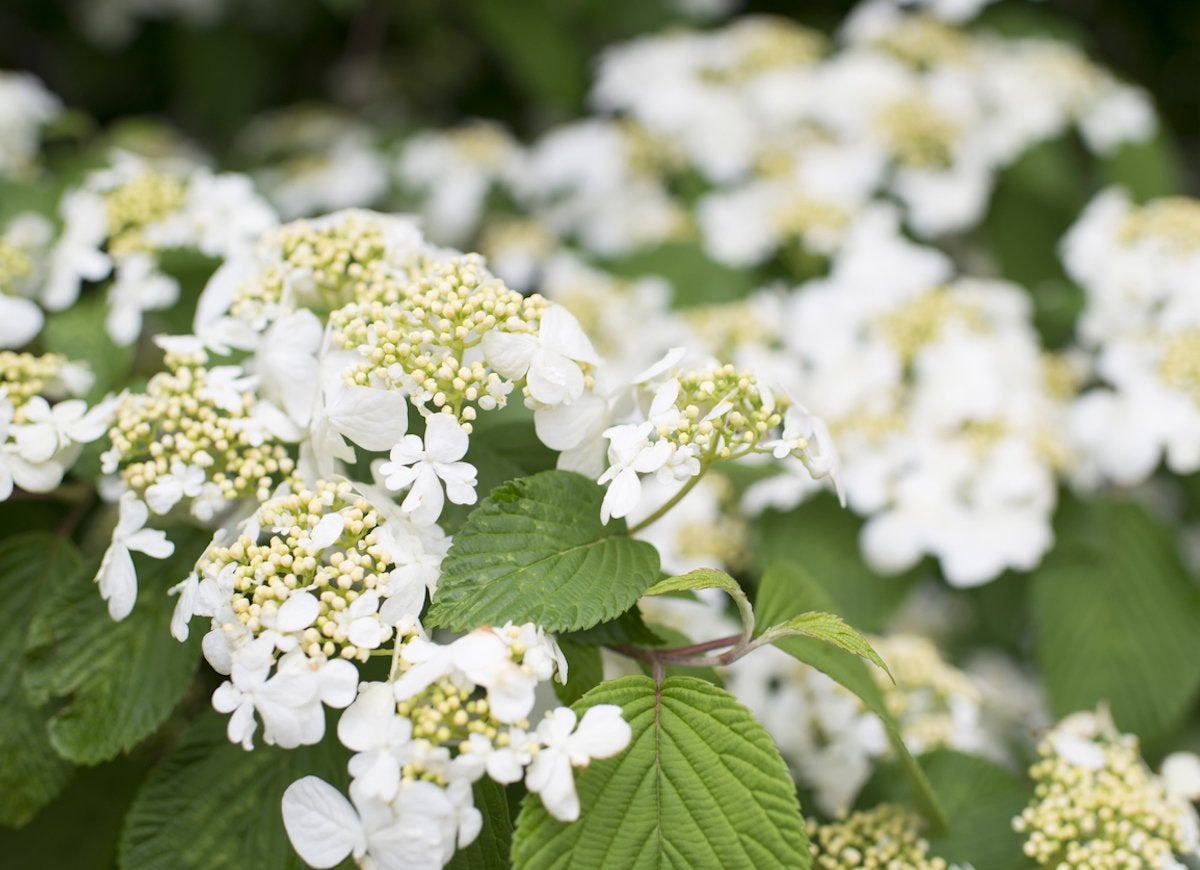
Many plants boast the rich green of Deep Forest Pine, a color that Glidden’s paint experts say is trending for 2019. For instance, the glossy leaves of Viburnum suspensum bring this trending color to the garden, punctuated by clusters of tiny white flowers in early spring through summer.
Arborvitae
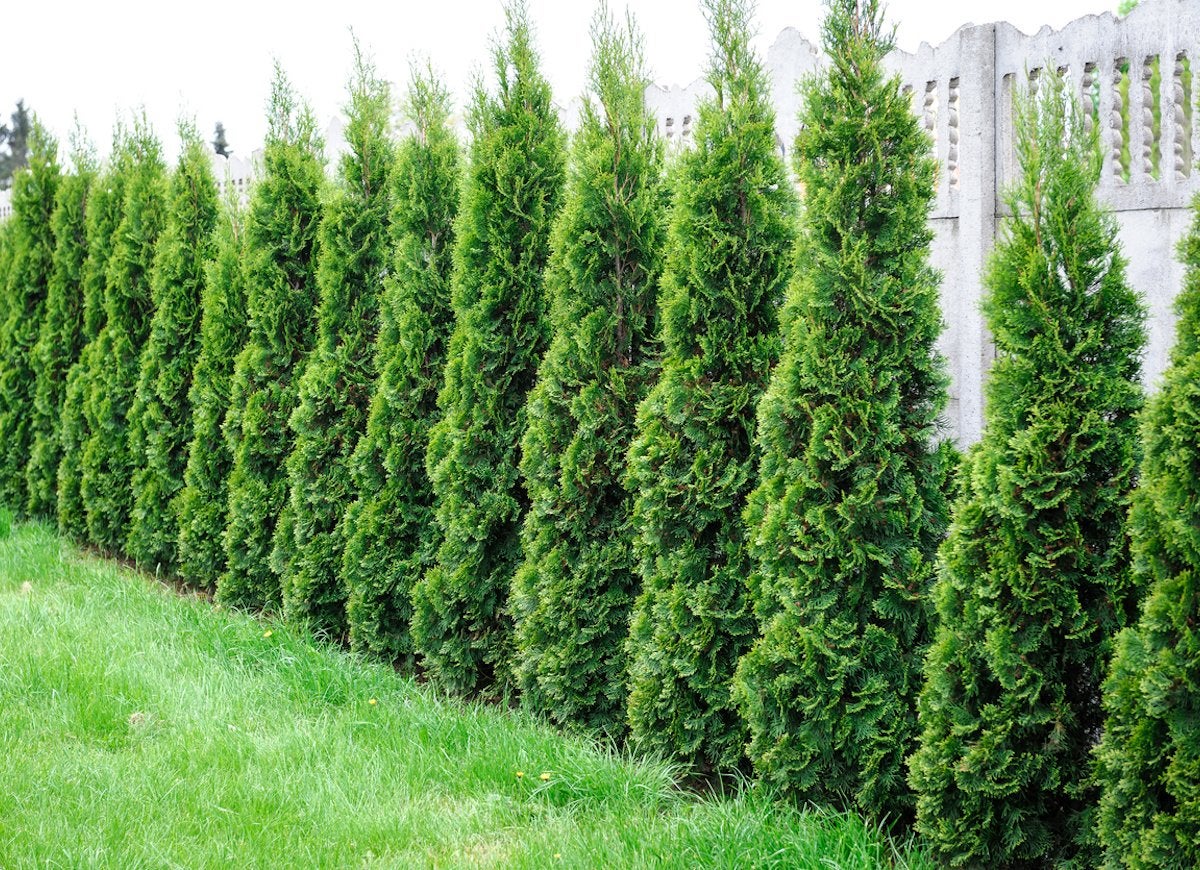
If you just can’t get enough of the refined green of Glidden’s Deep Forest Pine, consider planting some arborvitae. The evergreen is easy to grow and comes in varieties to suit almost any situation, from modest shrubs to tall trees like Thuja occidentalis ‘Nigra’, which can reach 20 to 30 feet.
Related: The 15 Best Trees for Any Backyard
Sedum ‘Purple Form’
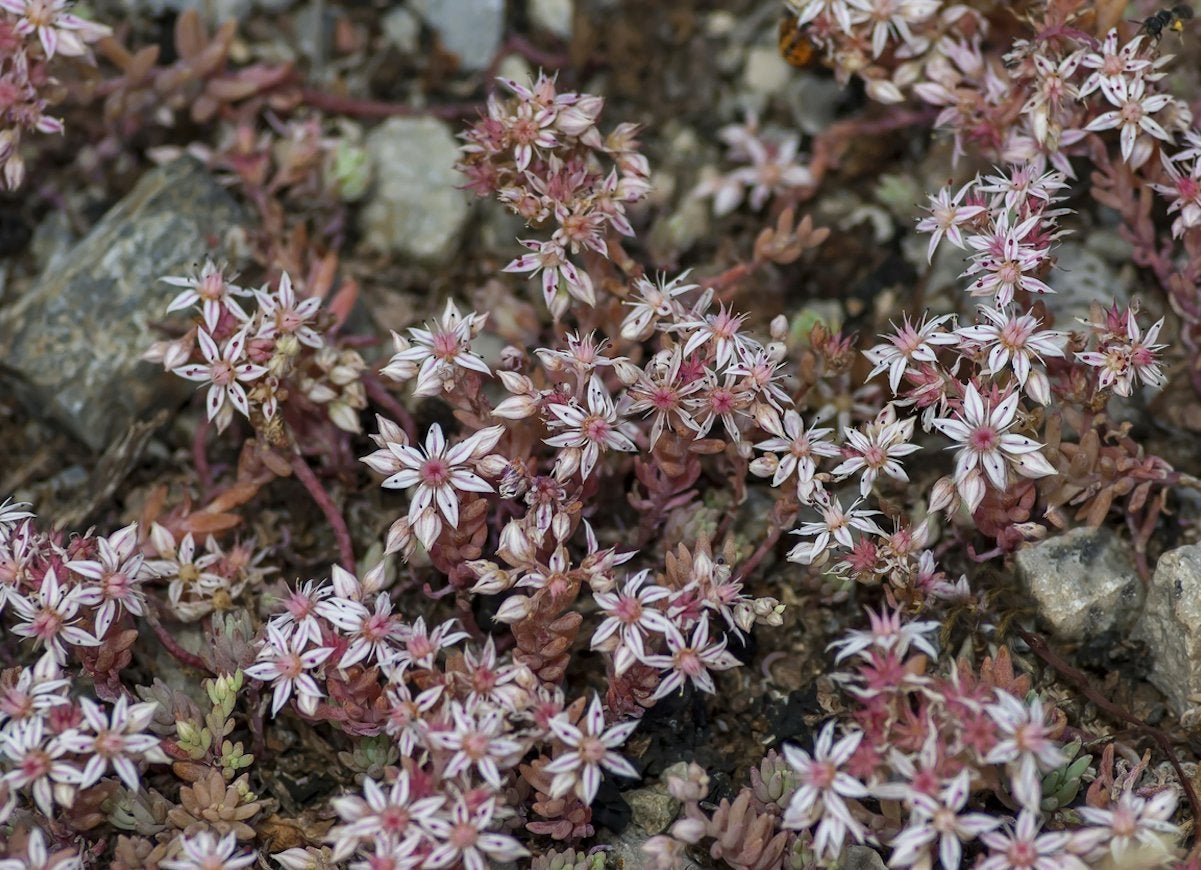
Sedum hispanicum minus is a succulent with tiny clusters of grayish-purple leaves that echo the trending Seattle Haze, one of 12 Colors of the Year from Valspar. This wonderful ground cover will burst with pink blooms in late summer.
Juniper
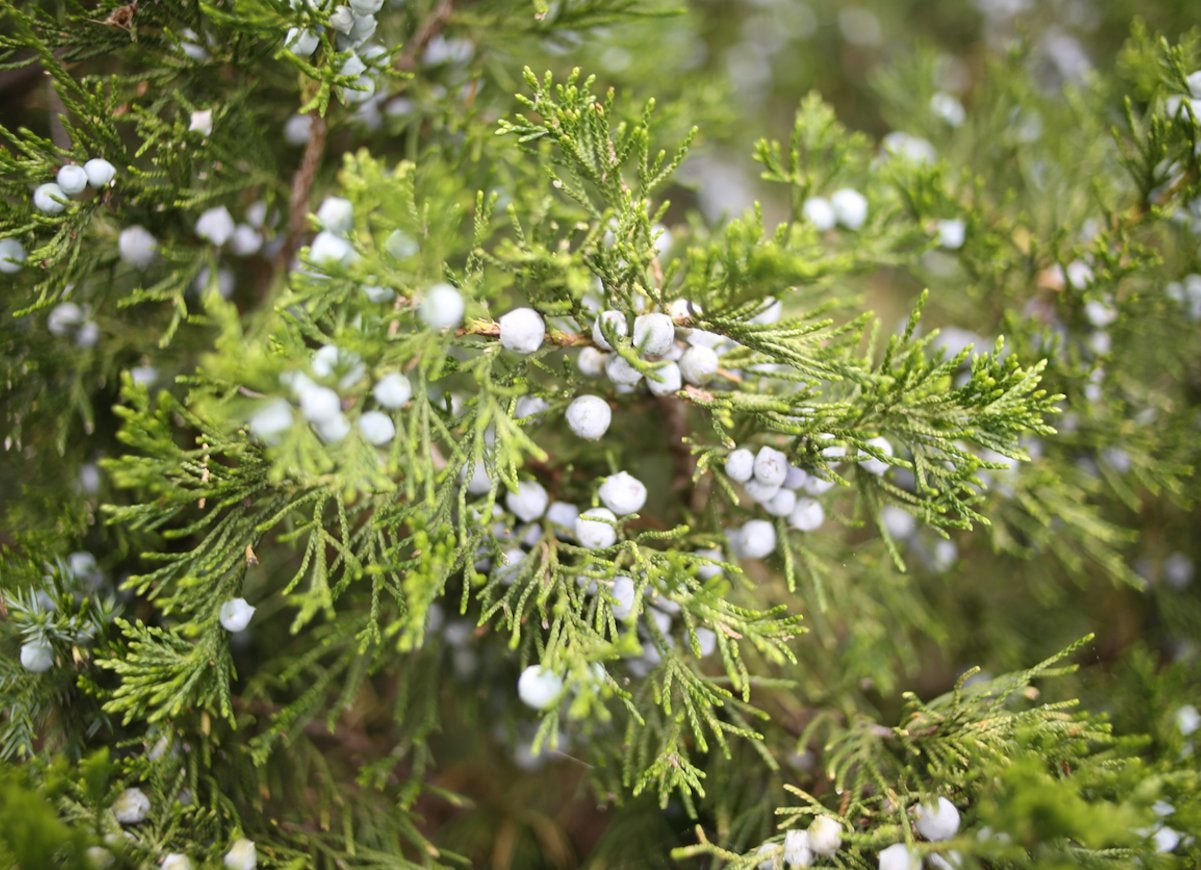
Don’t forget about the berries! Bushes and trees that produce berries bring a pop of color to the garden—a feast for the eyes, and a literal feast for wildlife. The violet-gray berries of many junipers, including Juniperus virginiana, dot the trees with a color not unlike Valspar’s Seattle Haze.
Related: 25 Easy-Care Plants That Survive With or Without You
Blueberry Bushes
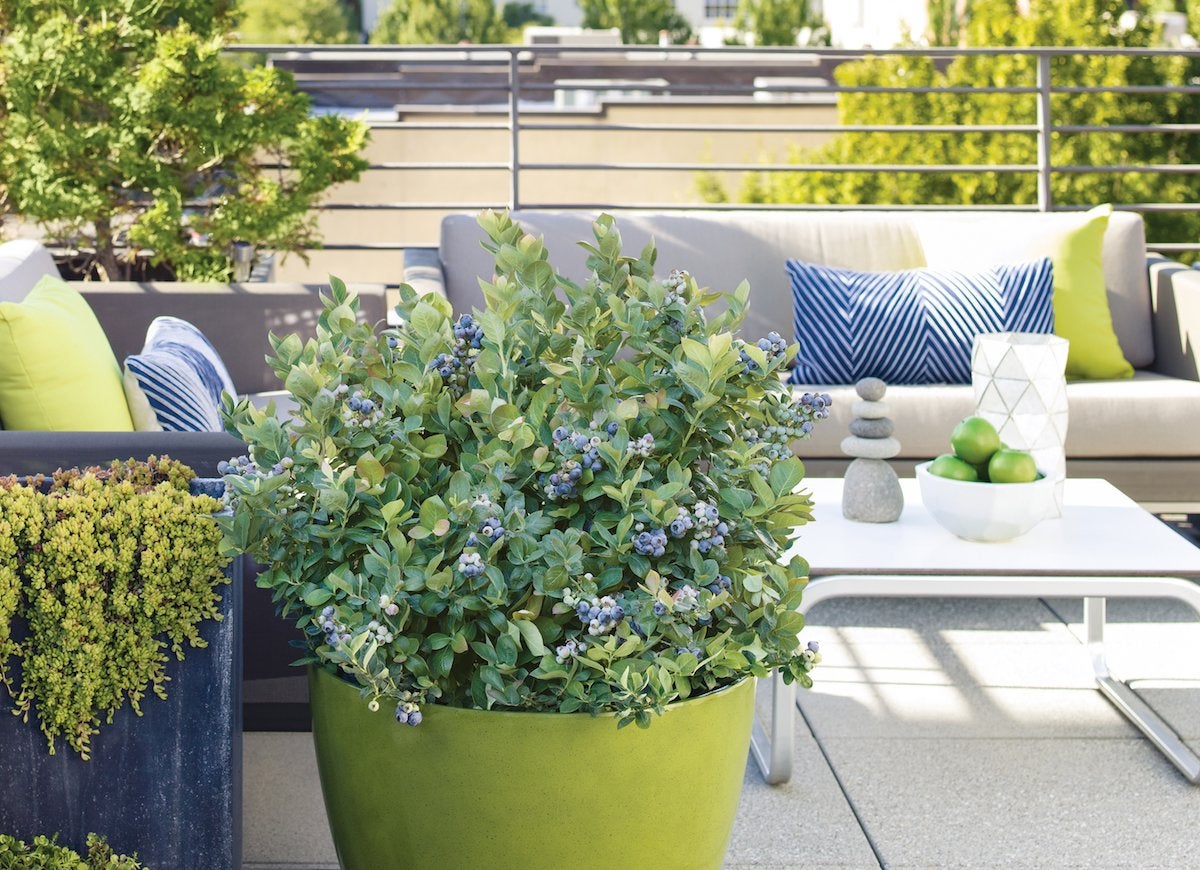
Berries may attract wildlife to your landscape, but you can enjoy them too—particularly if you plant blueberry bush varieties like Chippewa or Earliblue, if they are suited for your climate. Along with the tasty berries, you’ll get to enjoy the peacock blue hues of Valspar’s trending interior color.
Nasturtium
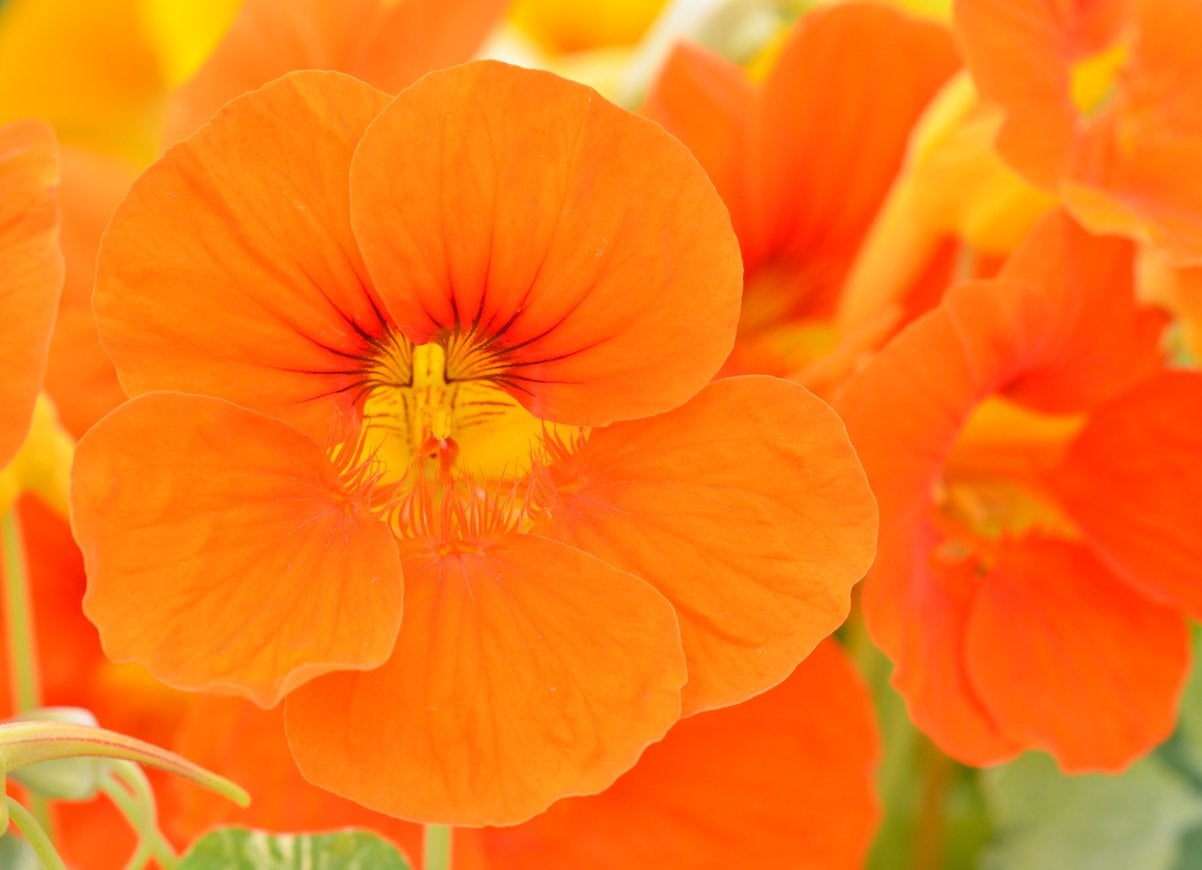
Orange Slice from Valspar is one of their hot color trends for 2019. Cultivate this warm, vibrant color outdoors by planting seeds of Alaska Apricot nasturtium. You’ll be rewarded with compact, tidy mounds of cheerful summer flowers.
Knock Out Roses
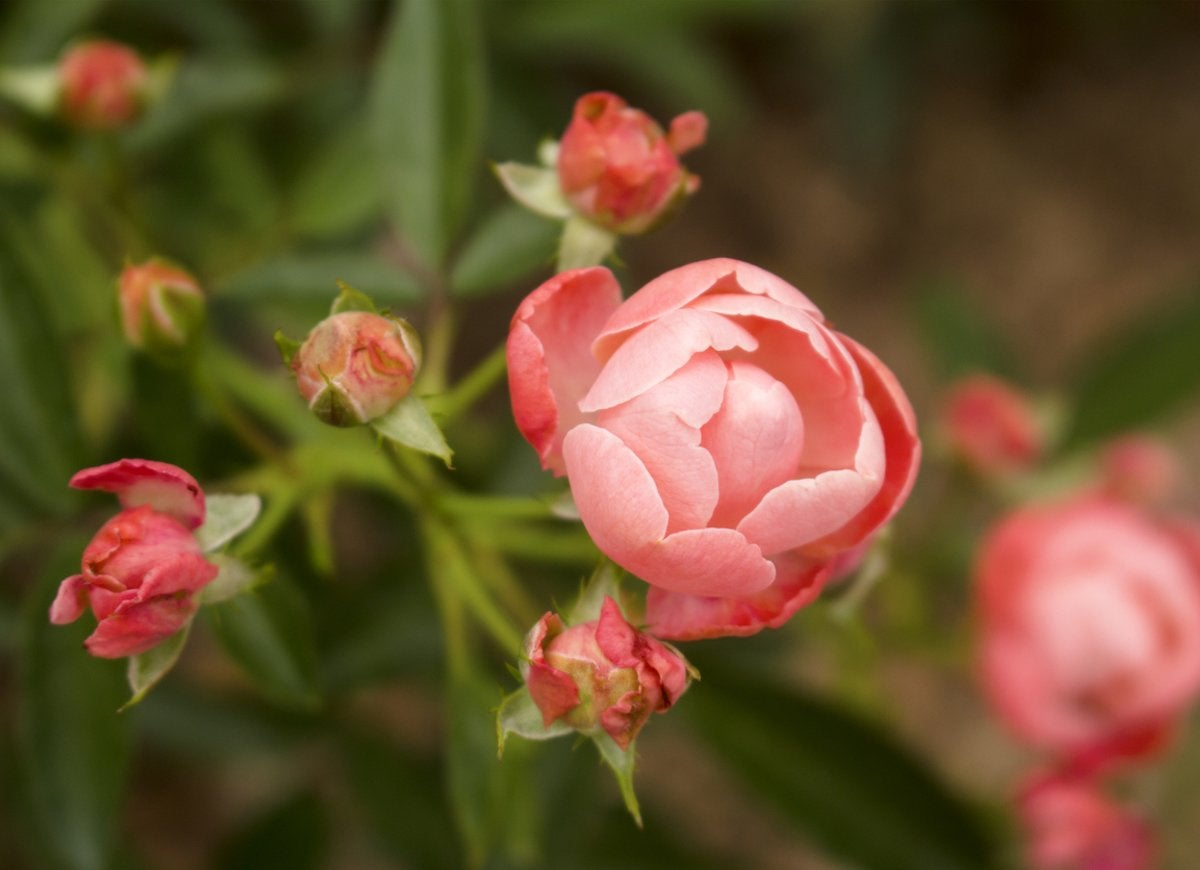
Knock Out roses are a hit in almost any garden. They thrive in a wide variety of conditions and put forth a profusion of blooms all season long. Even better, they’re available in a coral color, which will let you spread the warmth of Valspar’s Orange Slice over your summer landscape.
Pachysandra
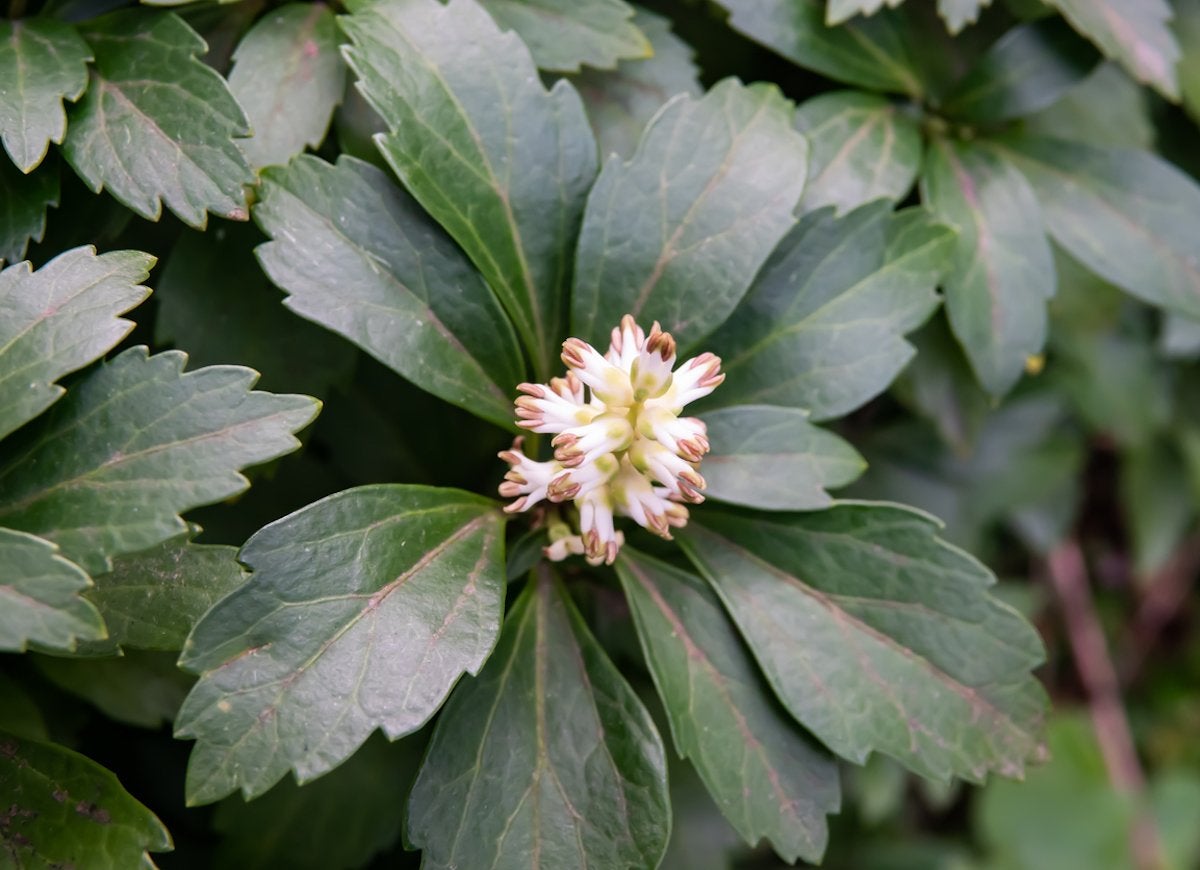
Deep green pachysandra spreads out like a cool carpet and does best in shady spots, under trees, and along wooded paths. The ground cover blankets the outdoors with serenity the same way PPG’s Color of the Year, Night Watch, a black-infused green, calms interior spaces.
Peony 'Double Cream'
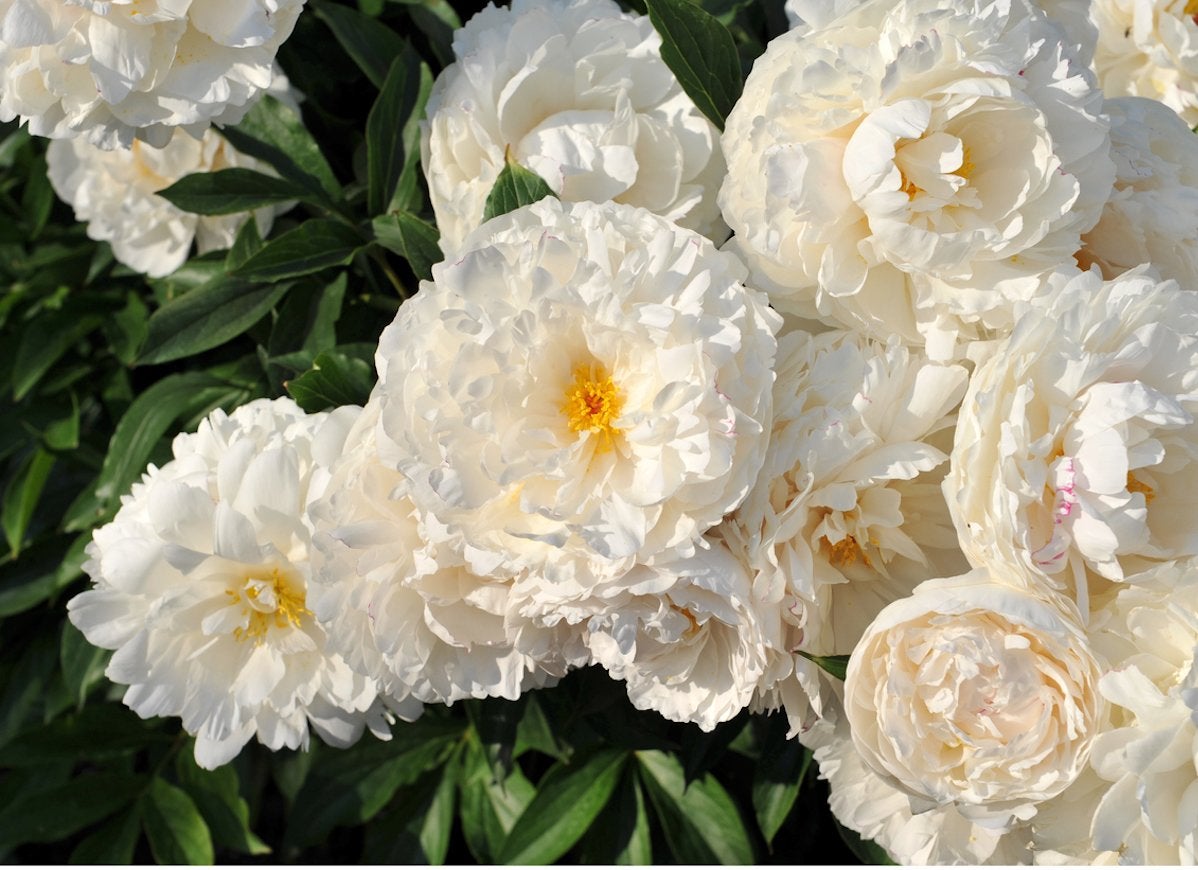
Clark+Kensington’s 2019 Color of the Year, Pineapple Cream Granita, brings a bright yet subtle warmth to interiors. Double Cream peonies will grace your outdoor spaces with the same brilliance.
Pots, Pots, Pots!
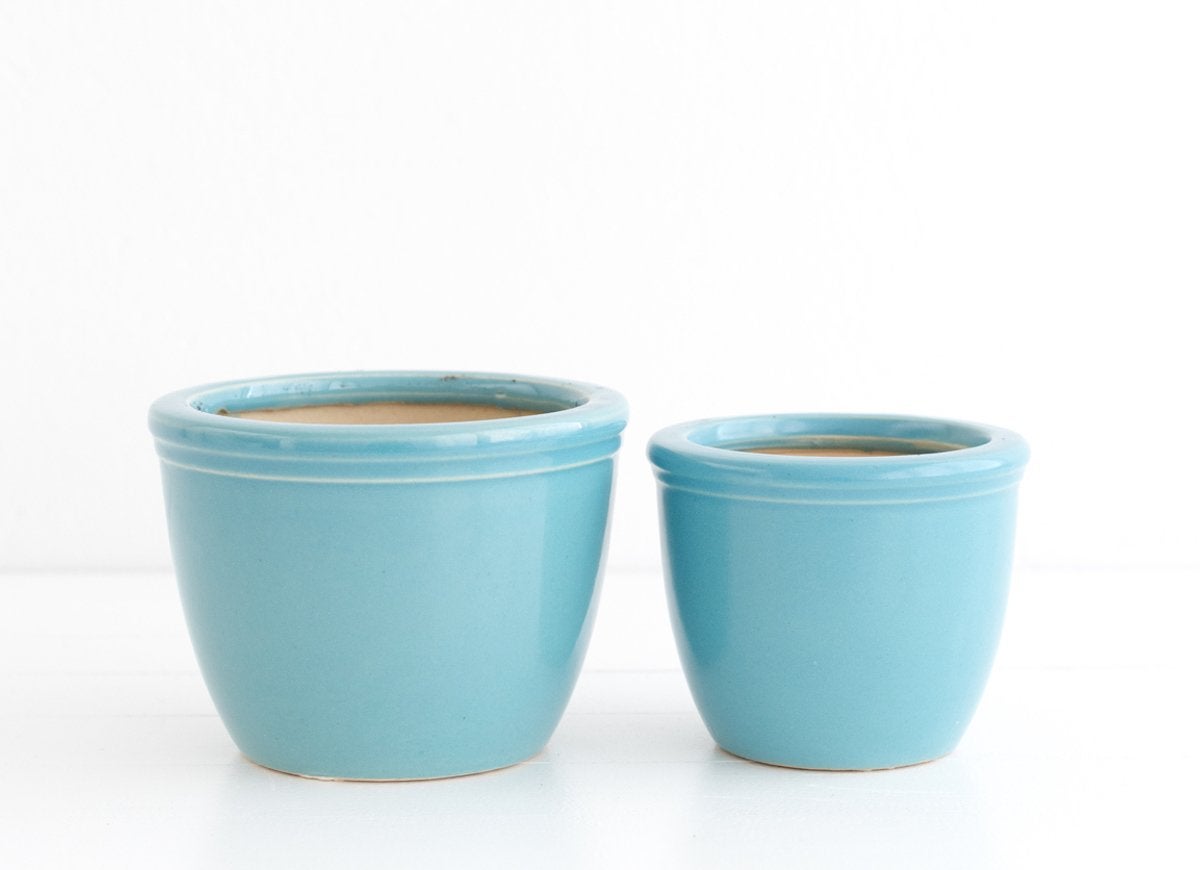
Some color trends—for instance, Reflecting Pool from Sherwin-Williams or Peacock Blue from Kelly-Moore—are hard to find represented in the foliage or blooms of domestic flora, but that doesn’t mean you can’t have them in your landscape. With plant pots and window boxes, you can bring almost any color into your garden. And because designers pick up on the color trends of the year and use them for decorative items like garden pots and accessories, you should find plenty of examples of these shades at your local garden or home center.
Related: 20 Flowering Houseplants That Will Add Beauty to Your Home

This Is the Year for a Kitchen Renovation
Whether you’re selling or staying, everyone can get something out of a kitchen update. Learn why we consider this renovation the Most Valuable Project of 2025 and how to stay on budget.
